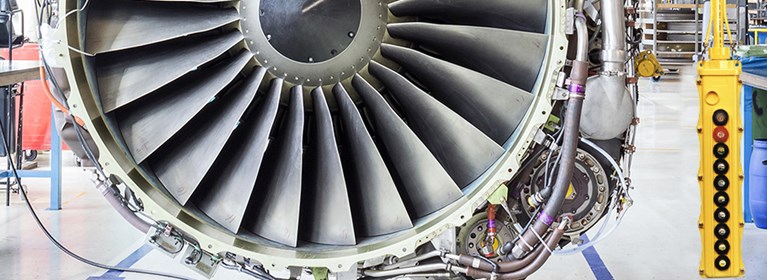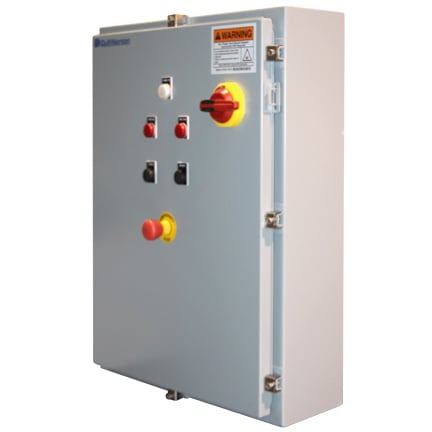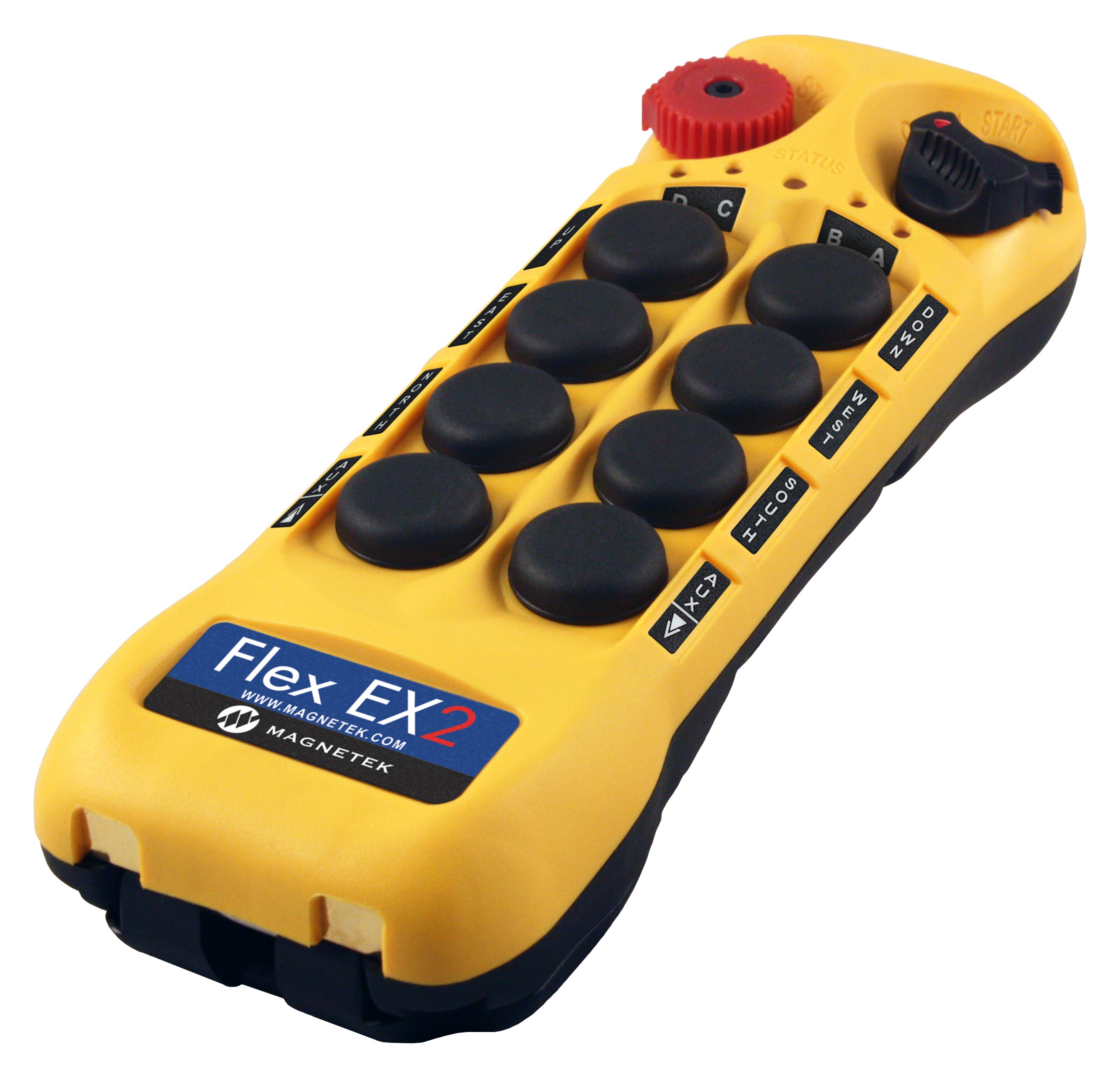
Control Systems in the Aerospace Industry: Enhancing Precision & Efficiency
Aerospace | | By Duff-Norton | Mar 31, 2025
Precision and reliability are critical in the aerospace industry. Whether in aircraft production, assembly, maintenance, or repair, manufacturers rely on high-performance motion control systems to ensure accurate, safe, and repeatable movement of aerospace components.
At Columbus McKinnon, we offer advanced power & motion control solutions that enhance automation, precision lifting, and positioning. With Magnetek control systems and Duff-Norton actuators, aerospace manufacturers can improve efficiency, safety, and productivity across production lines and MRO operations.
The Role of Motion Control in Aerospace
Aerospace operations require precise movement control across a variety of applications:
- Aircraft Component Manufacturing: Precise positioning for fuselage assembly, wing installations, and landing gear production.
- Aerospace Maintenance & Repair: Controlled lifting and positioning of engines, landing gear, and interior components.
- Testing & Quality Assurance: Ensuring aircraft parts meet exact specifications with minimal deviation
- Automated Material Handling: Moving heavy or delicate aerospace components with minimal risk of damage.
With smart motion control systems, manufacturers can improve repeatability, accuracy, and efficiency while reducing human error and operational downtime.
Motion Control Solutions for Aerospace
Duff-Norton Actuators for Aerospace Positioning
 In aerospace manufacturing, precise linear motion is essential for applications such as aircraft assembly, maintenance platforms, and automated positioning systems. Duff-Norton actuators provide reliable, repeatable movement, ensuring smooth operation and enhanced safety in critical aerospace applications.
In aerospace manufacturing, precise linear motion is essential for applications such as aircraft assembly, maintenance platforms, and automated positioning systems. Duff-Norton actuators provide reliable, repeatable movement, ensuring smooth operation and enhanced safety in critical aerospace applications.
- Duff-Norton Ball Screw Actuators: High-precision actuators for aircraft component assembly and maintenance.
- Duff-Norton Acme Screw Actuators: Ideal for positioning tools, platforms, and automated lifting applications.
- Duff-Norton Rotary Limit Switches: Provides accurate stopping control to ensure safe, repeatable movements.
Duff-Norton Actuator Control Systems
 For aerospace operations that require coordinated control of multiple actuators or automated motion sequences, Duff-Norton’s actuator control systems provide centralized control, advanced feedback, and flexible programming options. These systems are ideal for applications requiring synchronized lifting, safety interlocks, and precision motion coordination.
For aerospace operations that require coordinated control of multiple actuators or automated motion sequences, Duff-Norton’s actuator control systems provide centralized control, advanced feedback, and flexible programming options. These systems are ideal for applications requiring synchronized lifting, safety interlocks, and precision motion coordination.
- Available in basic motor starter panels or fully programmable PLC-based systems
- Customizable configurations for single or multi-actuator setups
- Integration with limit switches, encoders, HMI screens, and remote monitoring
- Designed to enhance system safety, automation, and repeatability in aerospace environments
Magnetek Control Systems for Aerospace Automation
Magnetek IMPULSE®•G+ Mini Variable Frequency Drives: Optimized Control for Aerospace Hoisting
 Aerospace facilities require precise, efficient hoist control for lifting aircraft components with minimal variance. The IMPULSE®•G+ Mini VFD is a versatile solution, capable of enhancing both new and existing crane and hoist systems. It integrates seamlessly with Yale/Shaw-Box electric wire rope hoists and the CM Lodestar Electric Chain Hoist, making it a flexible and effective choice for aerospace production environments.
Aerospace facilities require precise, efficient hoist control for lifting aircraft components with minimal variance. The IMPULSE®•G+ Mini VFD is a versatile solution, capable of enhancing both new and existing crane and hoist systems. It integrates seamlessly with Yale/Shaw-Box electric wire rope hoists and the CM Lodestar Electric Chain Hoist, making it a flexible and effective choice for aerospace production environments.
- Easily added to existing cranes and hoists, enhancing operational efficiency without requiring full system replacement
- Compact design, ideal for space-constrained aerospace production lines
- Smooth acceleration and deceleration, reducing shock loads on fragile aircraft components
- Enhanced safety features, including load monitoring and torque control, for precise material handling
Magnetek Flex EX2 Radio Remote Controls Enhancing Safety & Flexibility in Aerospace
 The Flex EX2 radio remote control system provides wireless operation of lifting equipment, improving safety, flexibility, and efficiency in aerospace manufacturing and maintenance. Its ergonomic and lightweight design enhances operator control in fast-paced aerospace environments.
The Flex EX2 radio remote control system provides wireless operation of lifting equipment, improving safety, flexibility, and efficiency in aerospace manufacturing and maintenance. Its ergonomic and lightweight design enhances operator control in fast-paced aerospace environments.
- Compact, lightweight transmitter reduces operator fatigue during extended use
- Customizable two-way communication for real-time control of cranes, hoists, and monorails
- Rugged, industrial-grade durability designed to withstand harsh aerospace production conditions
Benefits of Advanced Motion Control in Aerospace
Implementing smart motion control systems in aerospace manufacturing and maintenance provides several key advantages:
- Improved Precision: Ensures accurate, repeatable movements, critical for assembly and maintenance.
- Enhanced Safety: Reduces the risk of manual handling errors, improving operator protection.
- Increased Efficiency: Minimizes downtime and production delays by automating complex lifting and positioning tasks.
- Seamless Integration with Automation: Works with Industry 4.0 solutions for predictive maintenance and performance monitoring.
Future of Motion Control in Aerospace
The aerospace industry is evolving rapidly due to increasing demand for smart automation, predictive maintenance, and IoT-connected systems. Technologies like AI-driven motion control, real-time data analytics, and automation will further improve precision, efficiency, and safety.
Columbus McKinnon remains at the forefront of innovation, delivering cutting-edge motion control solutions that meet the growing demands of aerospace manufacturing and MRO.
Looking for a motion control solution tailored to your aerospace operations? Contact us today to learn more about our Duff-Norton and Magnetek technologies.
Contact our engineering team to assess your project needs today



 North America - EN
North America - EN










